Collection
Date
Location
Type
11 results
Remembering 1807
In 1807 Britain legally abolished the slave trade, although it continued to participate in and profit from the institution of slavery. In 2007 the British government committed public funds to mark the bicentenary of the Slave Trade Act. The Remembering 1807 project has collected and archived material relating to the many events and activities that took place during 2007. These records help us to locate and understand the place of slavery, the slave trade and its abolition in the UK’s public history, commemorative traditions and popular memory. Background to the collection...
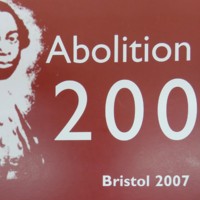
Abolition 200
Bristol was major trading port for the transatlantic slave trade in the 18th century. The city of Bristol marked the bicentenary of the Abolition Act with more than 100 events across the city - exhibitions, plays, debates, talks, concerts - under the umbrella organisation Abolition 200. In January…
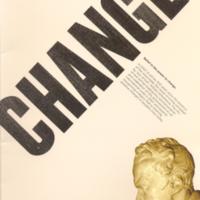
Wilberforce 2007
Wilberforce 2007 was a year-long programme of events from Hull City Council, commemorating the bicentenary and celebrating the city's diverse communities. The programme, named after 'son of Hull' William Wilberforce MP, was based around the themes of Pride, Freedom, Belief and Change. In partnership…
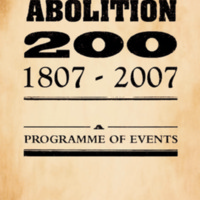
Abolition 200
A programme of events from Wolverhampton City Council to mark the bicentenary, which included a public debate about whether the British government should apologise for the slave trade, services of remembrance and film screenings. Other highlights included stories from Wolverhampton City Archives…

Abolition of the Slave Trade Bicentennial 2007: Ignored No More
The Greater London Authority produced an Events Guide for Londoners in 2007 detailing some of the initiatives taking place in the capital involving the Mayor. This included Africa Day on Trafalgar Square, celebrating the positive contributions of London's African communities, and 'Rise: London…

2007 Bicentenary for the Abolition of the Slave Trade Act at the National Maritime Museum
The National Maritime Museum marked the bicentenary with a range of initiatives and events including a new exhibition, a film season, poetry, music, debates, and new publications. A new permanent gallery opened at the museum in winter 2007 exploring Britain's Atlantic empire. A catalogue of…
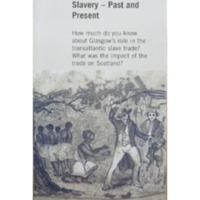
Towards Understanding Slavery: Past and Present
The Towards Understanding Slavery: Past and Present initiative by Glasgow City Council aimed to increase understanding of the human effects of the transatlantic slave trade, and explore its impact on Scotland's national heritage and Glasgow's history. A series of events, exhibitions and education…
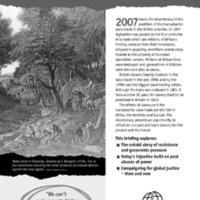
200 Years On: The legacies of enslavement and abolition
The World Development Movement seeks to increase awareness of political views in regards to world economic and social development. The organisation published a briefing in 2007 to mark the bicentenary, exploring the stories of grassroots pressure and the historic and modern campaigns for global…
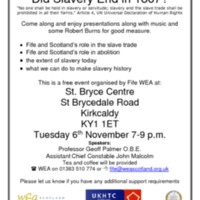
Did Slavery End in 1807?
An evening of presentations and music organised by Fife Workers' Educational Association, examining Fife and Scotland's role in the slave trade and abolition, and efforts to end contemporary slavery.
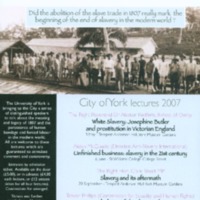
Slavery and Anti-Slavery in the Modern World
The City of York lectures in 2007 examined the question: Did the abolition of the slave trade in 1807 really mark the beginning of the end of slavery in the modern world? The University of York organised the public lecture series, which discussed the meaning and legacy of 1807 and the persistence of…
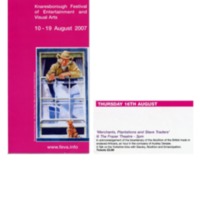
Knaresborough Festival of Entertainment and Visual Arts, 2007
Historian Audrey Dewjee gave a talk on the Yorkshire links with slavery, abolition and emancipation during Knaresborough's annual Festival of Entertainment and Visual Arts in 2007, entitled 'Merchants, Plantations and Slave Traders'.
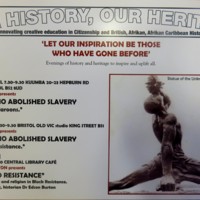
Our History, Our Heritage
Our History, Our Heritage was a black-led Bristol group promoting historical awareness of the contributions of African, African-Caribbean and British peoples in past and present struggles, and in Bristol in particular. Their series of talks and educational initiatives sought to encourage 'creative…